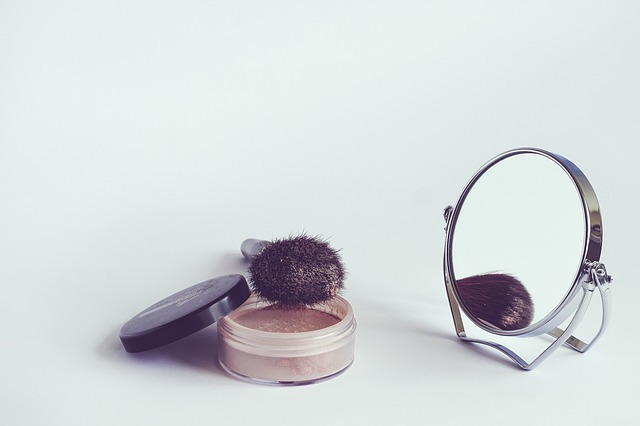
Every time an awards show comes around, we’re more interested in recapping controversial moments rather than keeping up with winners. So when Alicia Keys took to the stage to introduce the Best Male Video award at the 2016 VMA’s with a message of love before hate, critics jumped to share their judgments on the 35-year-old’s bare face first.
Keys attended the event in a Just Cavalli long-sleeved, black-and-red dress. Her hair was pulled away from her face and tied in a top knot, accentuating her makeup-free look even further.
There was discussion that Keys should have at least used a concealer or powder. One Twitter critic mentioned that “No makeup only works if you’re Alicia Keys.” Others assumed that by embracing her natural look, she was now completely against makeup.
As every good husband should, Swizz Beatz then took to Instagram to defend his wife, reminding critics that at no point was Alicia anti-makeup, she just didn’t feel like wearing it. He comically added, “This is deep. Somebody sitting home mad because somebody didn’t wear makeup on their face.”
This isn’t the first time in which Keys has embraced her barefaced image. When she first decided to take this approach back in May, her personal-but-relatable Lenny Letter essay was published explaining her stance.
“Every time I left the house,” Keys said, “I would be worried if I didn’t put on makeup: What if someone wanted a picture?? What if they POSTED it??? These were the insecure, superficial, but honest thoughts I was thinking. And all of it, one way or another, was based too much on what other people thought of me.”
Surely, we’ve all faced these insecure thoughts at some point in time. It’s reassuring to remember the people that we consider to be on the top of the social ladder still share the same human feelings we do. Celebrities are real, too.
After speaking to University of Miami students, I realized we all have our own views on makeup. Nonetheless, everyone supported Keys’s decision.
Freshman Kayla Hippolyte-Wade told me that she doesn’t wear makeup, chiefly because she grew up without it and doesn’t know how to use it. She liked that Keys was being authentic.
“Everyone else was wearing makeup, and she was different. She paved a way [toward confidence] for everyone who doesn’t wear makeup,” Hippolyte-Wade said.
Those who do use makeup regularly identified it with comfort and happiness.
“For some people, it’s just enhancing their already-beautiful features. But for others, it’s more of an artistic outlet,” said junior Emily Galvez.
“Makeup is fun if you’re into it,” said freshman Camberlyn Sparks. “I love it.”
Movements like “#NoMakeup” have brought both women and men a sense of empowerment these past few years.
While society still puts pressure on us, these movements have helped to alleviate that pressure and encourage us to be ourselves. For Keys, it doesn’t matter whether you wear makeup or not, so long as it’s what is true to you. That’s a movement we should all get behind.
Feature image courtesy Pixabay user summa






